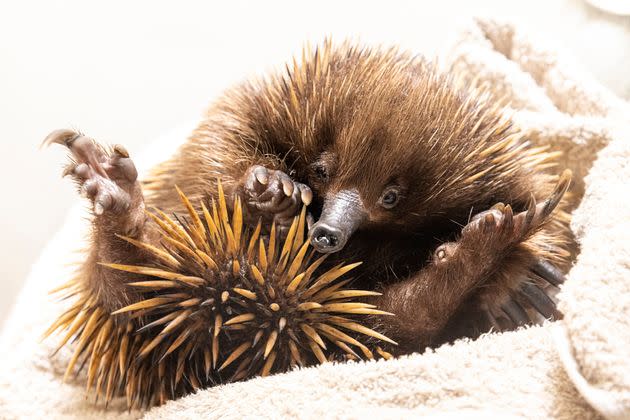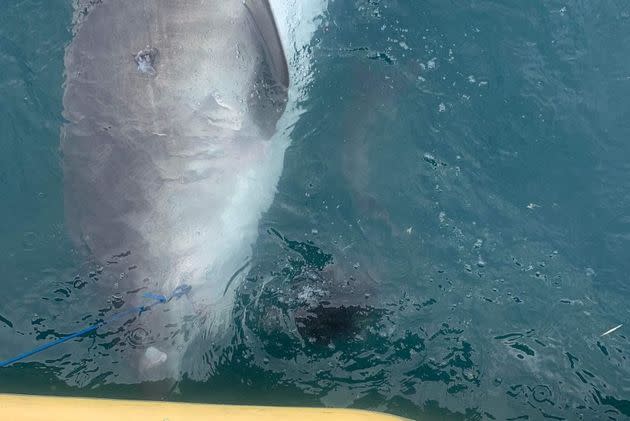Shark Stuns Scientists By Throwing Up 'Fully Intact' Echidna
Researchers in Australia believe they are the first people to witness a shark throwing up a whole echidna.
The shocking incident occurred when marine biologist Nicolas Lubitz and his research team were tagging animals for monitoring off the coast of Queensland’s Orpheus Island in May 2022, according to a Thursday press release from James Cook University.
After they wrangled a tiger shark, they saw that it had regurgitated what turned out to be an echidna ― a quill-covered, egg-laying mammal native to Australia and New Guinea.

Lubitz said in the press release that after the shark “spat it out,” he exclaimed, “What the hell is that?” He noted that the deceased animal was “fully intact ... with all its spines and its legs,” suggesting that the shark had swallowed it fairly recently.
The echidna’s body can be seen under the water in a photograph taken by Lubitz.

Though echidnas are land-dwelling, they’re also “quite good swimmers,” echidna expert Tahlia Perry told the Australian Broadcasting Corp. in 2019.
As for this particular echidna, Lubitz told the Guardian that he thinks it was probably swimming between islands, “looking for food or for mates, and just got unlucky and got snapped by a big tiger shark.”
Tiger sharks aren’t known for being discerning diners.
“I’ve seen videos of them eating a rock for no reason,” Lubitz said in the press release.
The shark may have thrown up the echidna due to the stress of being grabbed by the research team. However, James Cook University said that the shark was “unharmed” by the experience and was released after being fitted with a tracker.

